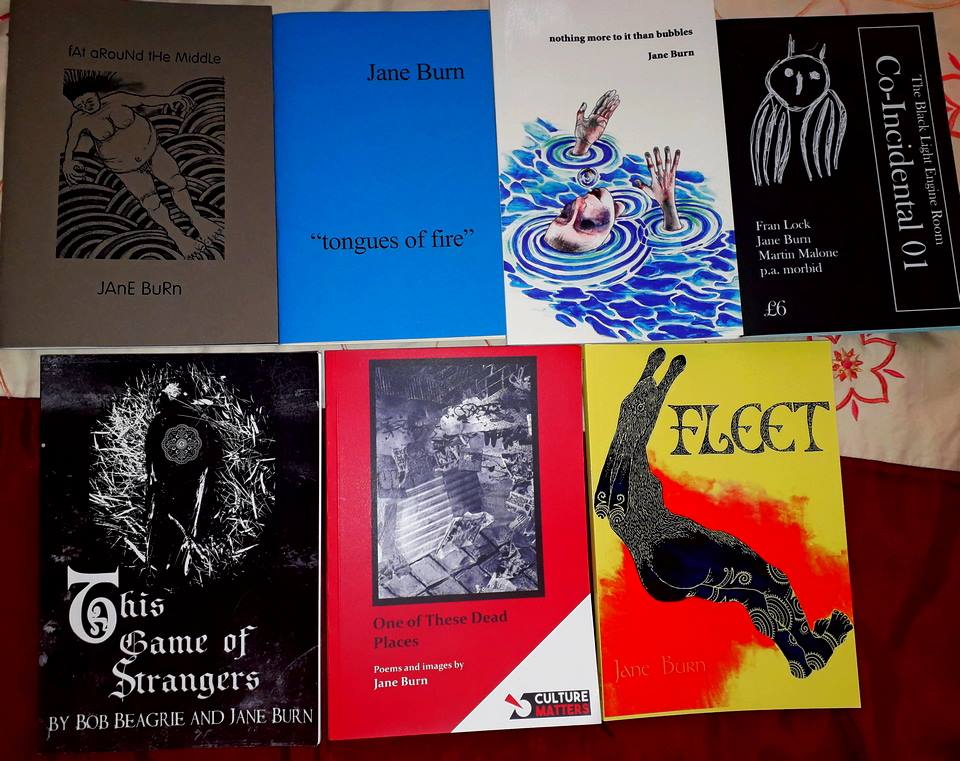
JANE BURN – POETRY AS HARD GRAFT, INSPIRATION, REACTION OR EXPERIMENT?
I interviewed poet & artist Jane Burn who won the Michael Marks Environmental Poet of the Year 2023-24 with A Thousand Miles from the Sea.
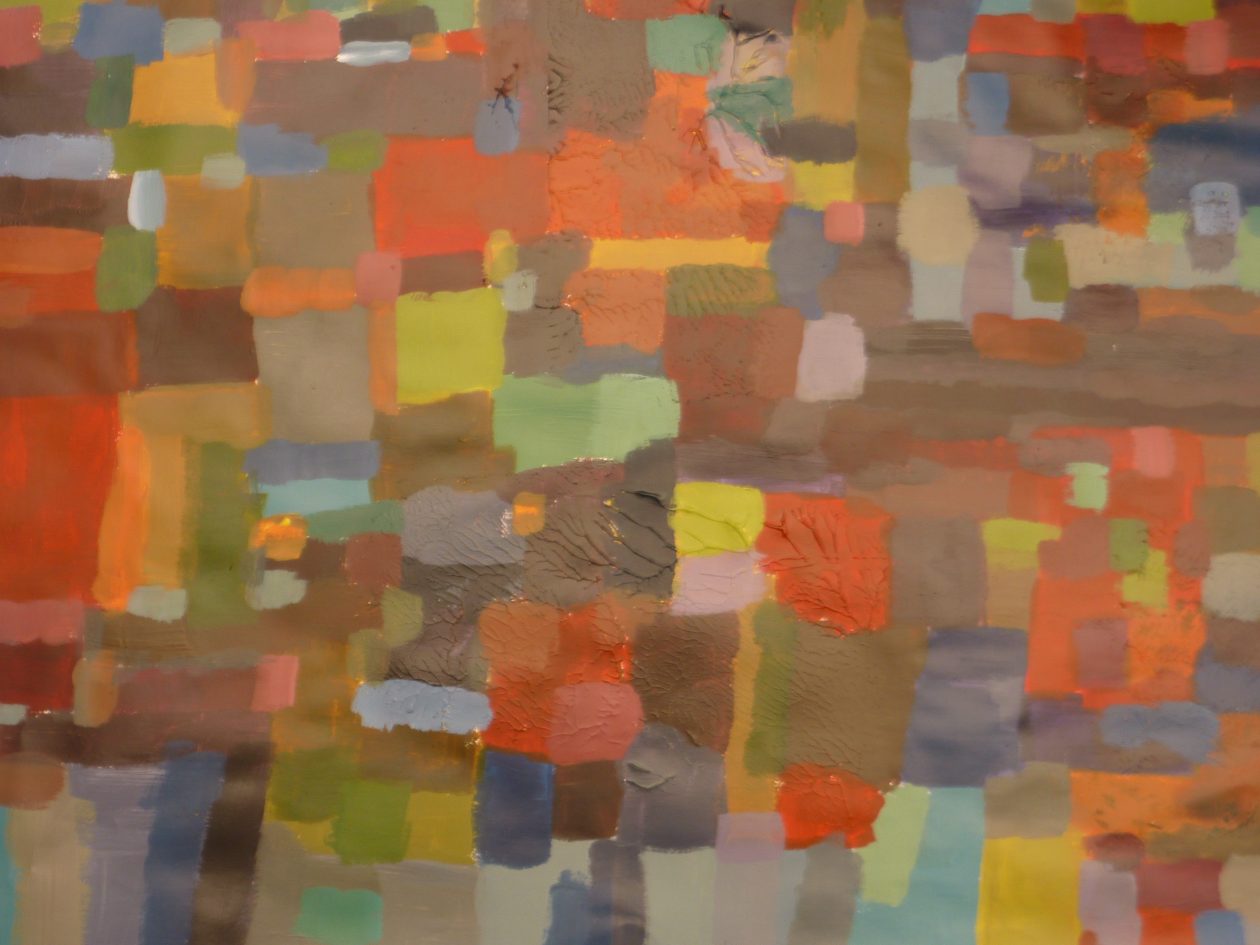
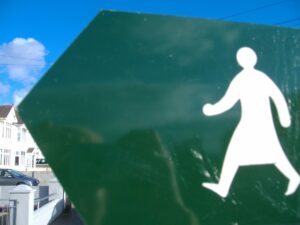
In Part Two of her interview, innovative Welsh artist Penny Jones talks about collaborating with visually-impaired people for her ‘feeling voice’ exhibition, as well as working with the ‘Boatshed Artists’ and the group ‘Rhôd’.
In this section, the illustrations include some examples of Penny’s more recent work.
Leslie: Can you describe, please, the idea of your ‘feeling voice’ exhibition.
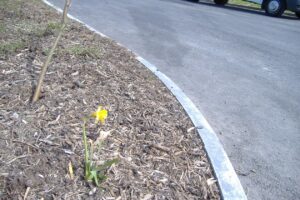
Penny: I am interested in the oppression of women and giving women in Wales a voice.
Myself and artist Gemma Green-Hope applied for a grant from the Arts Council of Wales to research and record women’s conversations about their life in Welsh. We were successful and the result is Llais Menywod (Women’s voice). It is a series of recordings displayed through interactive objects that people can listen to by touching. It became apparent that this would be ideal for sight impaired people.
I contacted groups for blind people in Wales and this led to working with Mared Jarman who was 22 and visually impaired. She and Gemma devised questions gleaned from our original research, about things like women feeling their voices are not heard and that they apologise too much.
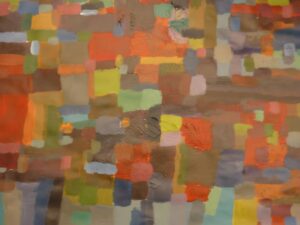
Spontaneously, I changed a bag of offcut material we had been given into a black quilt – which also fitted with the idea of women’s work. I am also committed to recycling, and used leftover pieces of material to make the quilt. The company that makes the touch boards for the interactive sound is called Bare Conductive. They supply conductive thread so it was all possible. One of the contributors to the ceramic quilt was Bev Bell-Hughes who is well known in Wales and is sight-impaired.
I later worked with another friend, the ceramicist Sally Richmond who was at Carmarthen Art School with me, inviting ceramicists to make artworks in response to the questions.
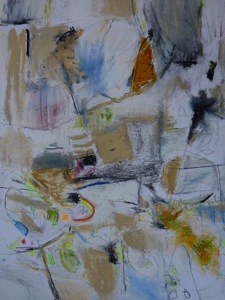
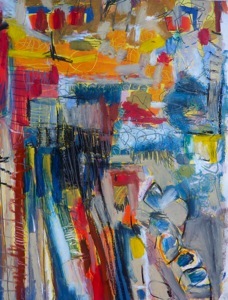
Leslie: You’re a member of the ‘Boatshed Artists’. Can you explain the name, what you do and how you’ve helped each other as artists?
Penny: The Boatshed group is called that because we meet in a studio that is a boatshed by an estuary, where one of the group also lives. This group has been a part of my life from while I was taking my degree. It’s a group of rather aged women artists (I am one of the youngest) who are of great support to each other. We meet every Thursday (I go when I can) and bring lunch. We have amazing meals and conversations but there are only two of them who really understand what I am doing, but they are all supportive anyway.
Leslie: You say in your statement that you ‘use myself and the present moment in my work striving as a woman and visual artist to find a language.’ How does that mean you work creatively?
Penny: I am striving to find a way to communicate political messages through my art, such as women’s rights, the oppression of the Welsh language, using public transport, recycling and reusing. I do reflect my age and having come to contemporary art so late in life.
I love journeying and extended these walks and journeys while doing my degrees and afterwards, finding a way to make them into art. I am still exploring this.
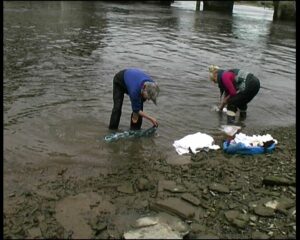
I was diagnosed with a learning problem meaning I can be extremely literal in how I understand the world, hence my working methods. Ideas tend to come to me when I wake up in the morning. Sometimes I work them out by brainstorming and then trying to connect them to the practical possibilities. I get immersed in what I am doing like when I did my piece about washing the lovers’ shirts in the river Teifi in Cardigan.
I want to spend time experimenting with painting and installation, in one of the two current projects I have at the moment. One involves collecting stories from people in the Preseli mountain area, which will be displayed via an interactive quilt. The other involves people talking about what has happened to the Welsh language in Pembrokeshire. Both operate through the medium of Welsh.
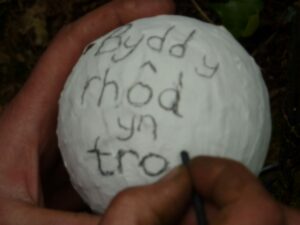
One important activity I must mention is my work with the group Rhôd, which means ‘wheel’ in Welsh. I am on the committee and we work between West Wales and Cardiff – it’s an urban/rural dialogue – and we show contemporary art here and in Cardiff (hence the nappies in Roath). You can see in this image the first work I did with them, which was biodegradable buoys after the big art project had been rejected in Cardigan for not being environmentally friendly enough.
Although I’m constrained by my health and age, when I’m working I become very excited, stimulated, and can’t keep up with myself!
Next week I interview prolific author and blogger, Debby Gies, about her memoirs, her book and travel blogs, and her work with online groups.
ABOUT LESLIE TATE’S BOOKS:

I interviewed poet & artist Jane Burn who won the Michael Marks Environmental Poet of the Year 2023-24 with A Thousand Miles from the Sea.
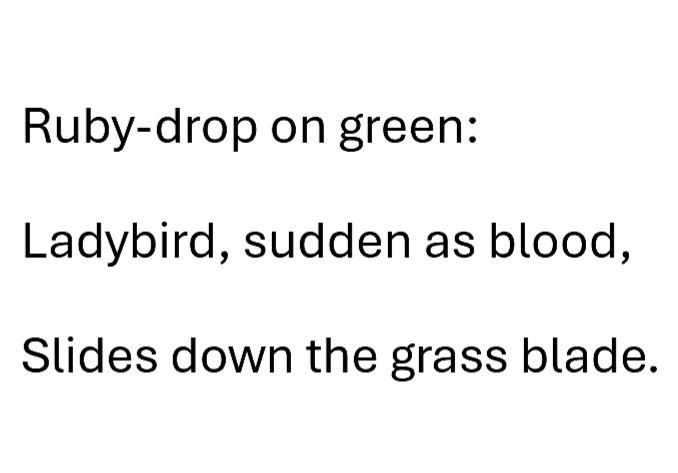
I interviewed ex-broadcaster and poet Polly Oliver about oral and visual poetry, her compositional methods, and learning the Welsh language. Polly says, “I absolutely love
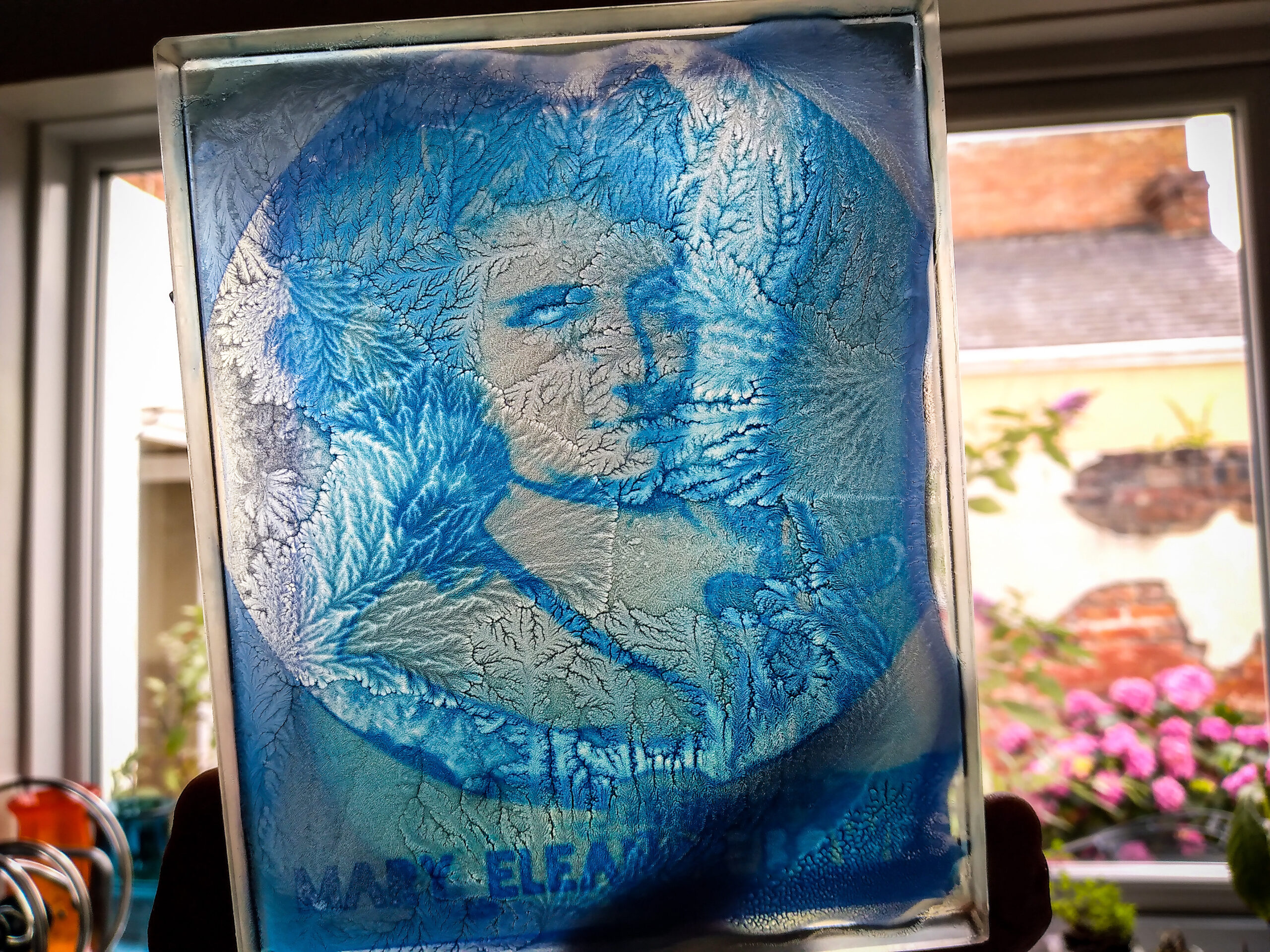
I interviewed Jo Howell who says about herself: “I’ve been a professional photographic artist since I left Uni in 2009. I am a cyanotype specialist.
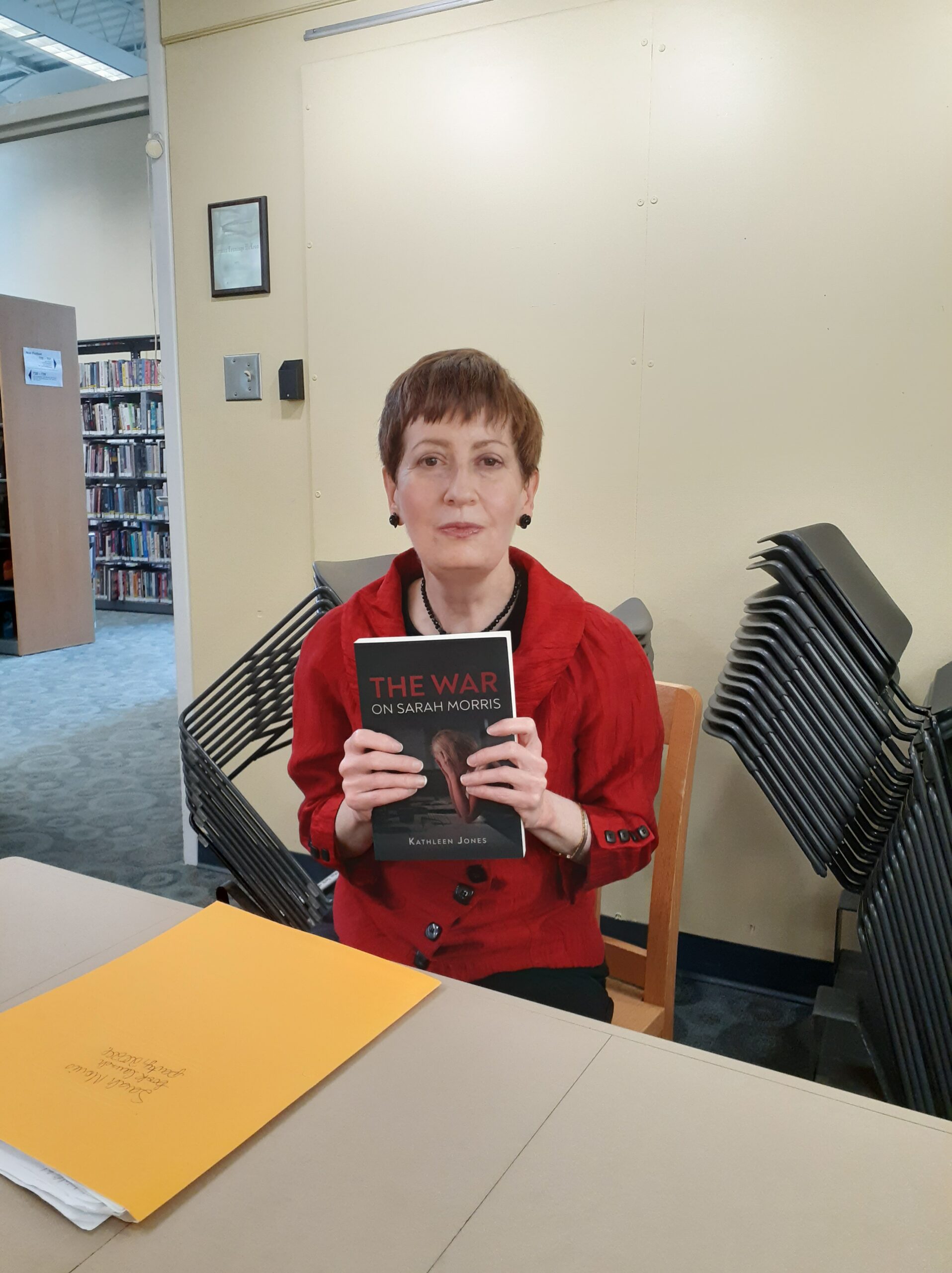
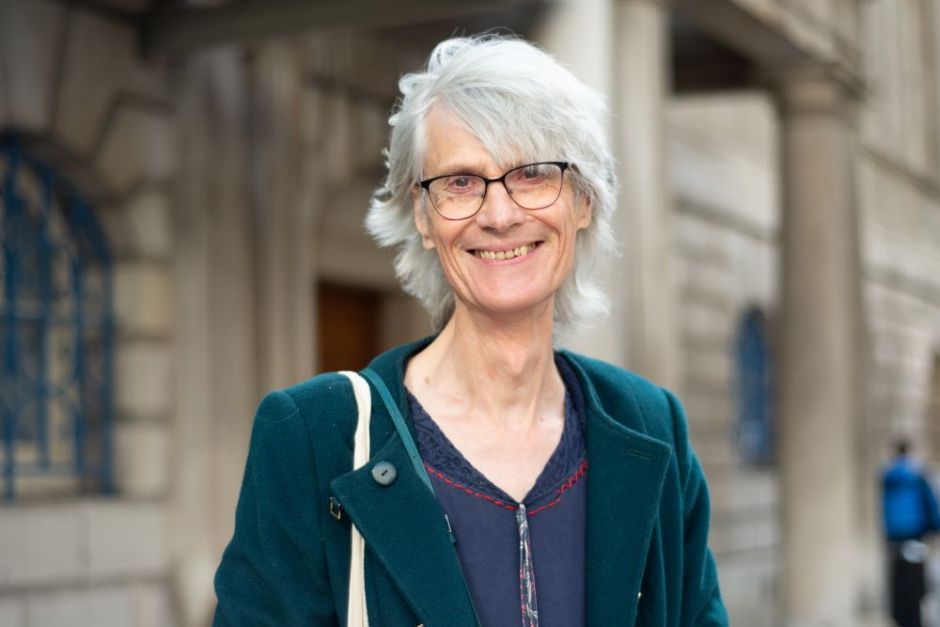
Poet Tracey Rhys, writer of Teaching a Bird to Sing and winner of the Poetry Archive’s video competition reviews Ways To Be Equally Human. Tracey,
| Cookie | Duration | Description |
|---|---|---|
| cookielawinfo-checkbox-analytics | 11 months | This cookie is set by GDPR Cookie Consent plugin. The cookie is used to store the user consent for the cookies in the category "Analytics". |
| cookielawinfo-checkbox-functional | 11 months | The cookie is set by GDPR cookie consent to record the user consent for the cookies in the category "Functional". |
| cookielawinfo-checkbox-necessary | 11 months | This cookie is set by GDPR Cookie Consent plugin. The cookies is used to store the user consent for the cookies in the category "Necessary". |
| cookielawinfo-checkbox-others | 11 months | This cookie is set by GDPR Cookie Consent plugin. The cookie is used to store the user consent for the cookies in the category "Other. |
| cookielawinfo-checkbox-performance | 11 months | This cookie is set by GDPR Cookie Consent plugin. The cookie is used to store the user consent for the cookies in the category "Performance". |
| viewed_cookie_policy | 11 months | The cookie is set by the GDPR Cookie Consent plugin and is used to store whether or not user has consented to the use of cookies. It does not store any personal data. |